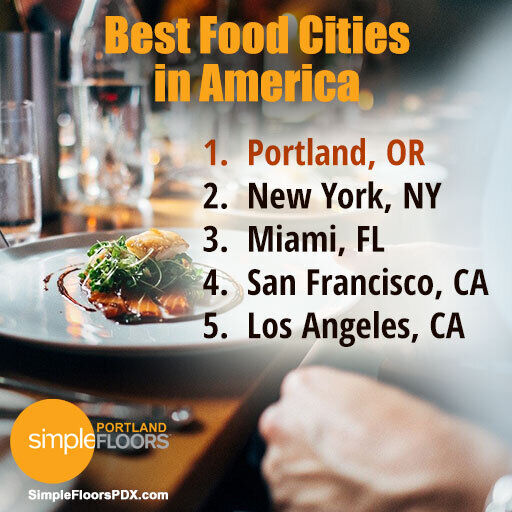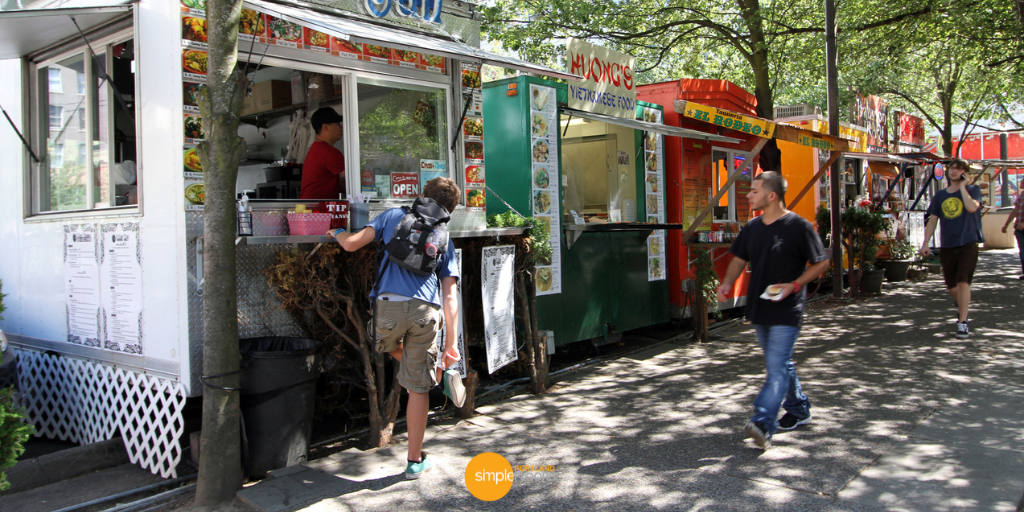In Portland, food is more than just sustenance; it’s an expression of creativity, community, and a connection to the region’s rich history. The roots of Portland’s foodie culture can be traced back to the city’s early days, when Native American tribes, such as the Chinook and Clackamas, relied on the bounty of the Pacific Northwest to sustain their communities. Over time, European settlers’ arrival, the Oregon Trail’s influence, and the city’s growth as a hub for shipping and commerce all contributed to the development of a diverse and innovative culinary landscape.
An Early Taste of Innovation
By the late 19th and early 20th centuries, Portland’s culinary scene expanded and diversified. Immigrants from around the world arrived, bringing their culinary traditions and adding new flavors to the city’s gastronomic offerings. In addition to European cuisine, Portland residents were introduced to the tastes of Asia, with the opening of the city’s first Chinese restaurant in 1875, and Japan, with the establishment of the first Japanese restaurant in 1902.
As the city grew, so too did its food scene. The turn of the century saw a boom in the number of restaurants and the development of the city’s first food-focused districts. This growth continued through the mid-20th century, with the opening of iconic establishments such as Huber’s, which still operates today as the city’s oldest continuously running restaurant.
A Revolution in the Making
By the 1970s and 1980s, a new wave of chefs and entrepreneurs began to reshape Portland’s food culture. Influenced by the farm-to-table movement, these culinary pioneers sought to elevate local ingredients and create dishes that celebrated the region’s unique flavors. Among these innovators were James Beard Award-winning, chefs like Greg Higgins and Vitaly Paley, who transformed the city’s dining scene by embracing local, seasonal ingredients and fostering a sense of collaboration among Portland chefs.
The Food Cart Phenomenon
In the 1990s, Portland’s culinary scene took another leap forward with the emergence of food carts. What began as a handful of mobile vendors offering affordable, quick meals quickly grew into a city-wide phenomenon. Today, Portland boasts hundreds of food carts, serving a diverse range of cuisine from around the globe. These mobile eateries offer affordable, innovative dining options and have become incubators for culinary talent, launching the careers of many successful chefs and restaurateurs.
The Rise of Craft Beer and Coffee
Complementing Portland’s food renaissance was the rise of craft beer and coffee culture. The city’s first craft brewery, BridgePort Brewing Company, opened its doors in 1984, paving the way for the craft beer boom that would follow. Portland is home to more than 70 breweries, earning it the nickname “Beervana.”
Similarly, the coffee scene exploded in the 1990s with the arrival of Stumptown Coffee Roasters. This artisanal coffee movement laid the groundwork for the city’s vibrant cafe culture, emphasizing quality, sustainability, and community engagement.
A Commitment to Sustainability
Central to Portland’s foodie culture is a deep commitment to sustainability and local sourcing. Residents and visitors alike can enjoy the fruits of this dedication at the city’s many farmers’ markets, where local growers, artisans, and producers showcase their goods. Moreover, the city’s numerous farm-to-table restaurants highlight seasonal, locally-sourced ingredients in their dishes, fostering a strong connection between diners, farmers, and the land.
The Future of Portland’s Food Scene
Looking ahead, Portland’s foodie culture continues to evolve and innovate. The city’s chefs and culinary entrepreneurs are constantly pushing the boundaries of traditional cuisine, experimenting with new flavors and techniques, and incorporating global influences to create a unique and dynamic dining experience. In addition, as the food scene expands, so does the city’s focus on inclusivity, with an increasing number of restaurants offering vegan, vegetarian, and gluten-free options to cater to a diverse range of dietary preferences.
Embracing Technology and Innovation
In recent years, Portland’s food culture has also embraced technology, with many establishments adopting innovative tools and practices to enhance the dining experience. From food delivery apps to the cutting-edge kitchen equipment, these advancements have helped streamline processes and increase efficiency while maintaining the city’s commitment to quality and sustainability.
Celebrating Portland’s Culinary Heritage

As the city continues to grow and evolve, it’s important for residents and visitors to take the time to celebrate and appreciate the rich culinary history that has shaped Portland’s foodie culture. From the earliest Native American communities to the innovative chefs and entrepreneurs of today, the city’s food scene has been a story of creativity, collaboration, and a deep connection to the Pacific Northwest.
Whether you’re a longtime Portland resident or a first-time visitor, there’s no better way to experience the city’s culinary heritage than by indulging in its diverse and delicious offerings. Portland’s foodie culture is a testament to the city’s innovative spirit and commitment to sustainability and is why Portland ranks #1 on the “Best Foodie Cities in America,” list.
So, go ahead, Portland residents, and savor the flavors of your city’s rich food history. There’s always something new and exciting to discover in the ever-evolving landscape of Portland’s foodie culture.







